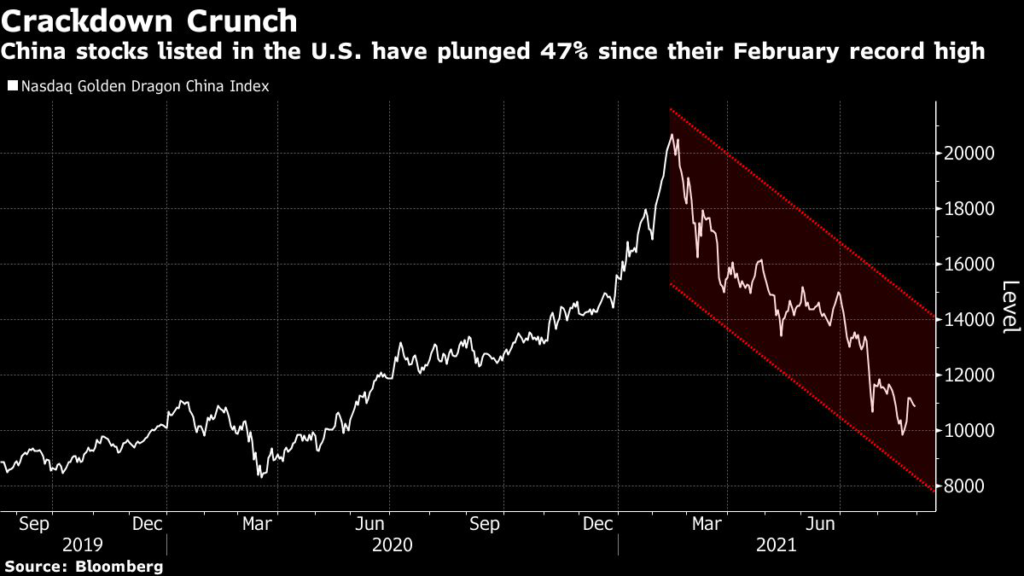(Bloomberg) — Chinese gaming stocks listed in the U.S. came under pressure once again on Monday after regulators in Beijing cut back the amount of time children can play online each week to just three hours.
American depositary receipts of gaming giant NetEase Inc. plunged as much as 8.8%, while Tencent Holdings Ltd. — which gets about a third of its revenue from video games — dropped 1.1% on the day. Other gaming-related stocks also closed lower with Bilibili Inc. losing 1.6% and Huya Inc. falling 3.7%
The latest rules will only allow gaming platforms to offer services to minors from 8 p.m. to 9 p.m. on Fridays, weekends and public holidays, according to state news agency Xinhua, which cited a release by the National Press and Publication Administration. China had previously restricted gaming hours for teens to 1.5 hours per day in 2019.
“For good reason, investors become extremely cautious when strict new regulations are handed down that negatively impact business,” said Michael O’Rourke, chief market strategist at JonesTrading. He added that this an example of “the Chinese government changing the rules in the middle of the game,” something U.S. Securities and Exchange Commission Chair Gary Gensler warned about earlier this month.
Investors have been bombarded this year by a sweeping crackdown from Chinese regulators that has targeted a growing list of companies including technology giants, after-school tutoring firms and ride-hailing platforms. The moves are part of a broader push for “common prosperity” by President Xi Jinping that has ratcheted up in recent months.
For the gaming industry, this marks the second time in less than a month that Chinese firms have been targeted as part of the nation’s regulatory tightening, with investors growing increasingly concerned about these stocks.
Gaming ADRs also tumbled in early August after state media published a scathing article that called online games “spiritual opium” and “electronic drugs.” While those references were later stripped out from the story, Tencent still responded by pledging to limit play time for teens and said it would ban in-game purchases for under 12-year-olds.
The Nasdaq Golden Dragon China Index — which tracks 98 firms listed in the U.S. that conduct a majority of their business in China — gained 0.7% on Monday after earlier falling as much as 2.5%. Still, the gauge has dropped 29% this year, including about 47% since its record high in February.
While Beijing’s latest clampdown has clearly spooked investors, some analysts say the risks are relatively low.
“It is worth noting that teenagers are not the main revenue source for gaming companies,” said Jessica Tea, an investment specialist for greater China equities at BNP Paribas Asset Management Asia Ltd. “We think the regulation impact is relatively under control.”
(Updates pricing throughout.)
More stories like this are available on bloomberg.com
©2021 Bloomberg L.P.











